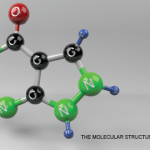The ACR Committee on Journal Publications announces the search for the position of editor in chief of Arthritis & Rheumatology. The official term of the next Arthritis & Rheumatology editorship is July 1, 2020–June 30, 2025; however, some of the duties of the new editor will begin during a transition period starting April 1, 2020….

Foundation Earns Coveted 4-Star Rating from Charity Navigator for 10th Consecutive Year
The Rheumatology Research Foundation’s strong financial health and commitment to accountability and transparency have earned yet another four-star rating from Charity Navigator, America’s largest independent charity evaluator. This is the 10th consecutive time the Foundation has earned this top distinction. Only 1% of charities have ever received 10 consecutive four-star evaluations, indicating the Foundation outperforms…

New Study: Does Urate-Lowering Therapy Reduce Gout-Patient Mortality?
Results of a recent study in Arthritis & Rheumatology fail to clarify whether urate-lowering therapies may potentially reduce mortality risk in patients with gout.1 The study also underscores the fact that many physicians are not following the ACR guideline to help their patients achieve target serum urate levels. Partly because of this, it remains unclear…

Research Suggests Th17 Cells Have Microbiota-Dependent Role in RA
A growing body of research is elucidating the role of intestinal microbiota in several autoimmune diseases, including rheumatoid arthritis (RA). Research published in December 2018 Arthritis & Rheumatology increases our understanding of the “extent and nature of mucosal immune activation during preclinical arthritis.”1 The research objective, according to the report, was to “dissect intestinal mucosal immune…
Rheumatoid Arthritis Risk Lower Among Smokers Who Quit
(Reuters Health)—Adults who quit smoking decades ago may have a lower risk of rheumatoid arthritis (RA) than people who gave up cigarettes more recently, a U.S. study suggests. Smoking has long been linked to an increased risk of RA, and quitting can reduce this risk. But the new study offers fresh evidence that years of…
Tainted Research Repeatedly Re-Used to Assess Drug Effectiveness
(Reuters Health)—A new study shows how fake news—specifically, information about scientific research that may be tainted by fraud—keeps getting spread through the medical literature, misleading doctors about the safety and effectiveness of the drugs they prescribe. At issue is the failure of medical journals to flag research that’s been identified by the U.S. Food and…
Duration & Treatment of Musculoskeletal Symptoms of Immunotherapy-Induced Arthritis
A new case series outlines the treatment and duration of symptoms of 10 patients experiencing the musculoskeletal manifestations of immune-related adverse events. Researchers found these symptoms may last for more than a year, but can generally be treated with low to moderate doses of corticosteroids…
Mortality Trends in Lupus Nephritis
According to results of a recent study of all-cause and cause-specific mortality trends of end-stage renal disease due to lupus nephritis from 1995 to 2014, the all-cause premature mortality rate improved among white, African American and Hispanic patients, with reduced risk of death from CVD and infection. Jorge et al. observed a 32% reduction in mortality. This improved survival may be explained by a combination of improvements in the management of ESRD and of underlying SLE…

Rheumatology Research Foundation Fuels Pipeline of Next-Gen Providers
One aspect of the Rheumatology Research Foundation’s work is recruiting more people into the field, and it starts by building interest in rheumatology among the best and brightest medical and graduate students. The Foundation is fueling the pipeline of rheumatology professionals by supporting students, residents and fellows in a number of ways, such as with…

Why & How Our Biologic Drug Discussion with Patients Should Evolve
As we turn the corner on the second decade of biologic use for rheumatic disorders, a reappraisal of approach in our communication with patients is due. In practice, the impact these agents have on patients’ lives justifies the friction rheumatologists face when connecting patients to them. You can understand why older rheumatologists who apprenticed on…
- « Previous Page
- 1
- …
- 27
- 28
- 29
- 30
- 31
- …
- 125
- Next Page »